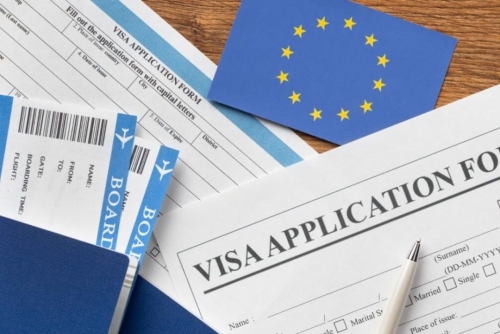Israel Among First at Risk as EU Tightens Visa-Free Entry Rules
TDT | Manama
Email: mail@newsofbahrain.com
European Union introduces tougher criteria for suspending Schengen visa waivers, placing Israel and Serbia under potential scrutiny
In a major shift to its travel policy, the European Union is poised to reform the mechanism that governs short-stay visa-free access into the EU and Schengen countries — with Israel reportedly among the first nations at risk under the new rules.
The European Parliament and Council reached a political agreement on Tuesday to expand the grounds for suspending visa-free travel. For the first time, violations of international human rights, humanitarian law, and breaches of United Nations resolutions could justify the imposition of mandatory visas for countries currently benefiting from the waiver.
According to EU Parliament sources cited by Euronews, Israel’s treatment of Palestinians and its ongoing military campaign in Gaza have raised significant concern, with allegations of war crimes and crimes against humanity being referenced in UN reports. Serbia has also been named as another country under watch due to repeated concerns about human rights violations.
Currently, nationals from 61 countries — including Israel, Australia, the UK, Japan, Ukraine, and the Western Balkans — enjoy visa-free access to the Schengen area for up to 90 days in any 180-day period. However, this exemption can be suspended under certain conditions, though such action has only been taken once in the past — against the Republic of Vanuatu.
Under the new agreement, the suspension mechanism will become easier to trigger. Thresholds for invoking the mechanism have been lowered, and additional criteria have been introduced. Notably, the reformed rules empower the EU to suspend visa-free access if a country is found to be violating UN Charter principles, ignoring international court rulings, or involved in systemic human rights abuses.
“This tool helps us deliver the values that have built our community and allows us to enforce human rights and respect for international law,” said Slovenian MEP Matjaž Nemec, the lead rapporteur for the legislation. “No specific country is being targeted,” he added, although sources suggest that discussions around Israel played a significant role in shaping the final draft.
Under the procedure, the European Commission would issue an implementing act to suspend visa-free access for an initial period of one year. This decision must be approved by EU member states and can only be blocked by a qualified majority. Extensions would require further acts, which could be vetoed by either the Council or the European Parliament.
In addition to human rights criteria, the reformed regulation introduces stricter controls over irregular migration. The threshold to flag a "significant increase" in irregular stays will now drop from 50% to 30% of the previous period’s numbers. Furthermore, the benchmark for low asylum approval rates — another trigger for suspension — will rise from 4% to 20%.
These changes are seen as part of the EU’s broader push to manage migration and assert values-based diplomacy. “The Polish presidency pushed hard for this reform due to strong ambitions among member states,” Nemec added, highlighting the political momentum behind the deal.
While the legislation has been agreed upon in principle, it must still be formally adopted by both the European Parliament and the Council before becoming law. Once enacted, it could have significant implications for countries currently enjoying visa-free travel — especially those under scrutiny for human rights practices.
Related Posts

